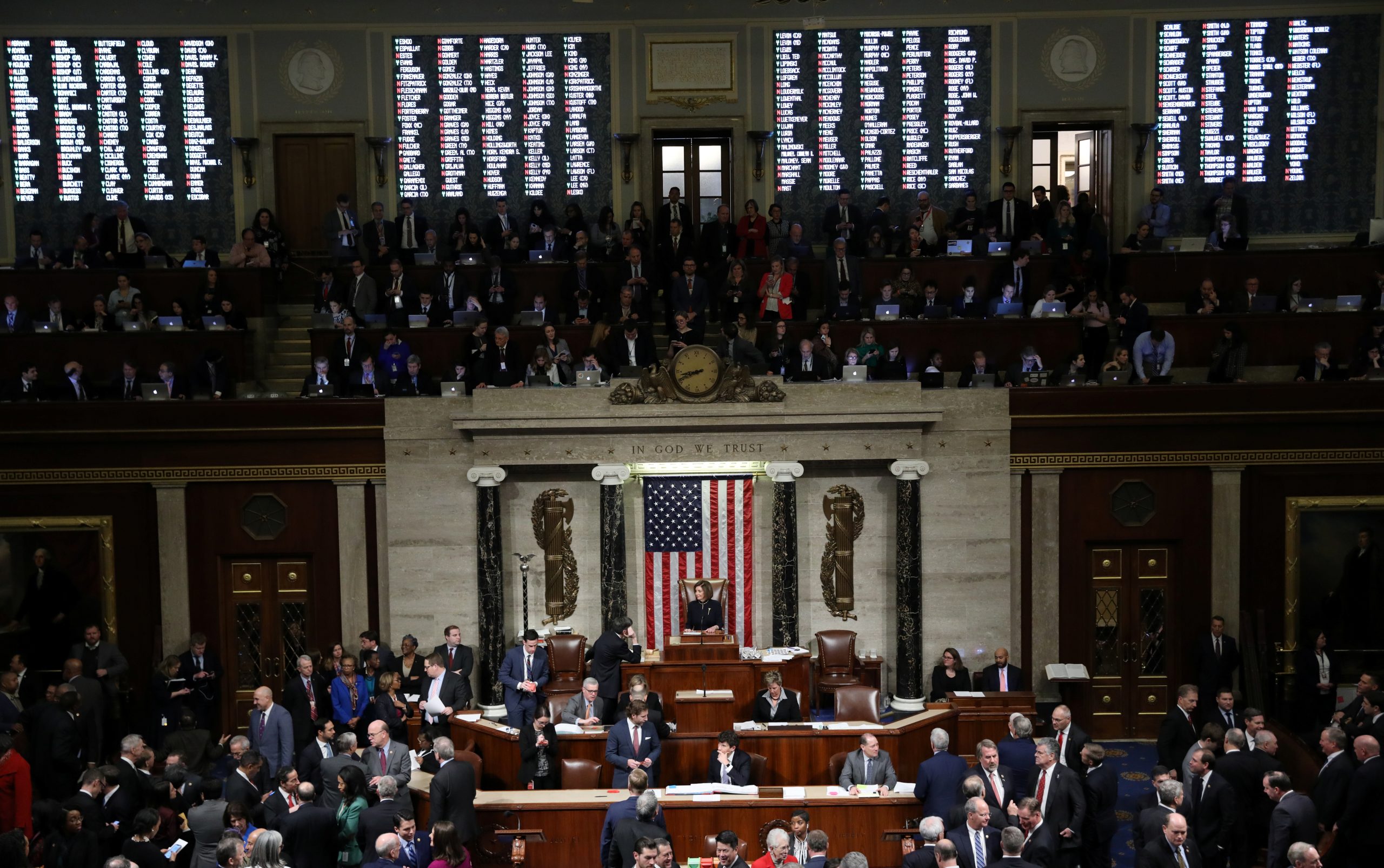U.S. senators, who had expected just weeks ago to be turning their attention to an impeachment trial of President Donald Trump, will kick off the week focusing on “ordinary business,” with lawmakers still at loggerheads over trial rules.
Democrats have been pressing for witnesses to be called, but Trump’s fellow Republicans have held firm that any decision on testimony must wait until after opening statements are heard.
Complicating the calculus, House of Representatives Speaker Nancy Pelosi – the top Democrat in Congress – has yet to send the House-approved impeachment articles to the Senate, putting a question mark over the schedule for a trial and buying time for Democrats to try to build the case for witnesses.
Senate Republican leader Mitch McConnell, who Pelosi accuses of carrying water for the president, has said a trial cannot begin until the charges are formally sent to the chamber, although another senior Republican called on Sunday for the rules to be changed if Pelosi does not act soon.
“We’re not going to let Nancy Pelosi use the rules of the Senate to her advantage,” Senate Judiciary Committee Chairman Lindsey Graham, a Trump ally, told Fox News Channel’s “Sunday Morning Futures.”
Without the articles in hand, McConnell said on Friday that senators would focus on “ordinary business” – in Monday’s case, a nomination for a new head of the Small Business Administration.
The earliest the House could take any action would be Tuesday when it reconvenes, but top Democrats have given no sign they are set to move this week.
“I don’t think it’s going to be indefinite,” House Intelligence Committee Chairman Adam Schiff, a Democrat, told CNN’s “State of the Union” on Sunday when asked about the delay in transmitting the impeachment articles.
“I don’t think that’s at all the desire, motivation here. The desire is to get a commitment from the Senate that they’re going to have a fair trial.”
The Democratic-led House has charged Trump with abusing his power for personal gain by asking Ukraine to announce a corruption investigation of former Vice President Joe Biden, a leading contender for the Democratic nomination to face Trump in November’s presidential election.
It also charged the president with obstructing Congress by directing administration officials and agencies not to cooperate with the impeachment inquiry.
Trump says he did nothing wrong and has dismissed his impeachment as a partisan bid to undo his 2016 election win.
The Senate, which is controlled by Republicans 53-47, is unlikely to vote to find the president guilty and remove him from office, an act that would take a two-thirds majority.
But Democrats have been hopeful they could persuade a few Republicans to side with them on their push for witnesses, which would require only a simple majority and could unearth evidence damaging to Trump.
(Reporting by Susan Cornwell and Rochard Cowan; Writing by Tim Ahmann; Editing by Daniel Wallis and Peter Cooney)

























 Continue with Google
Continue with Google